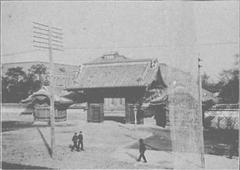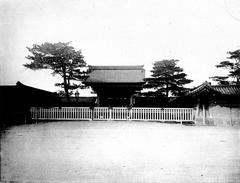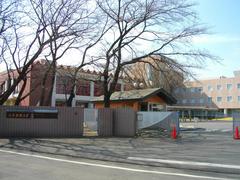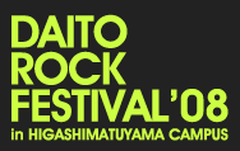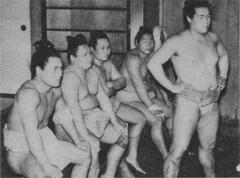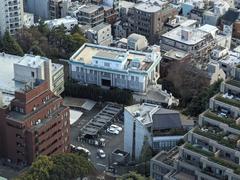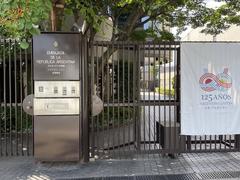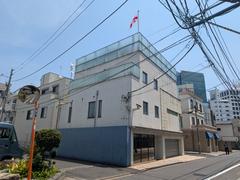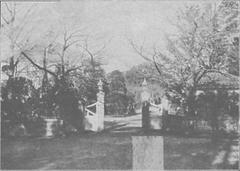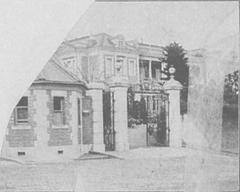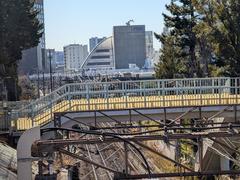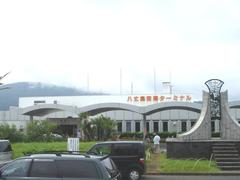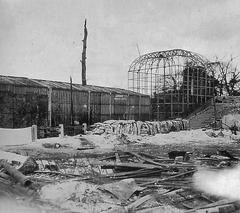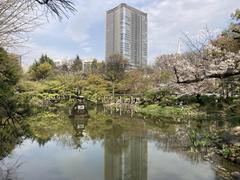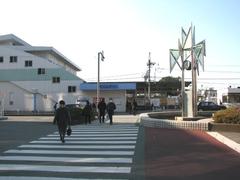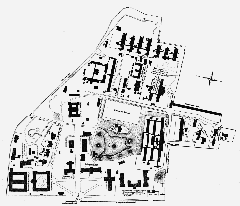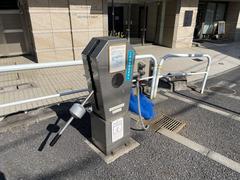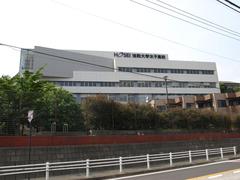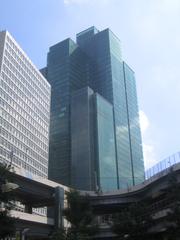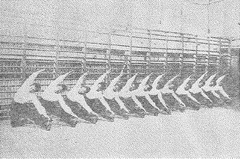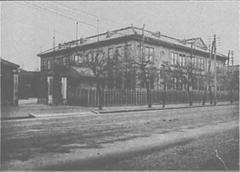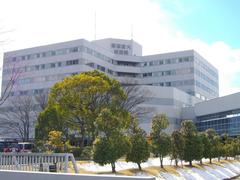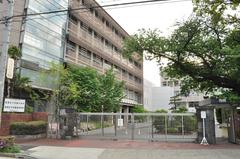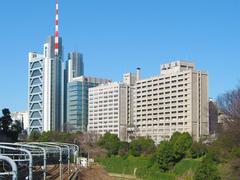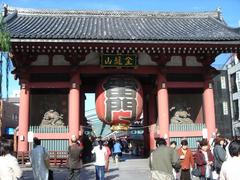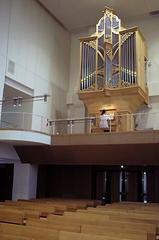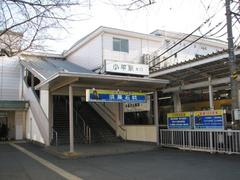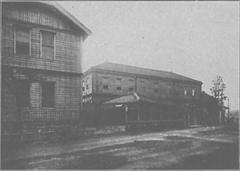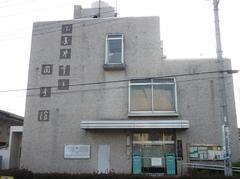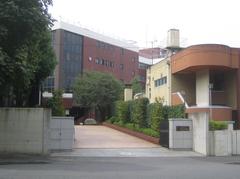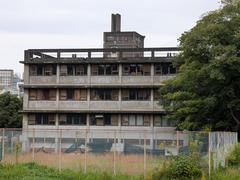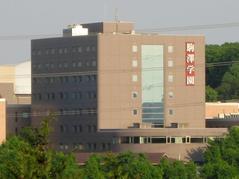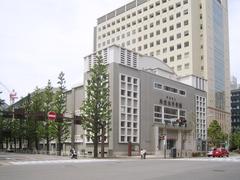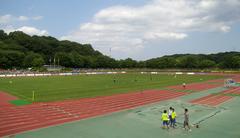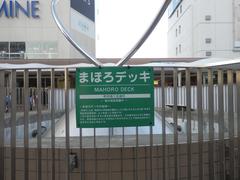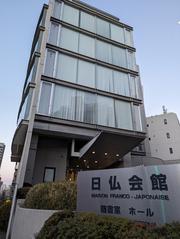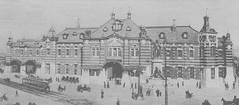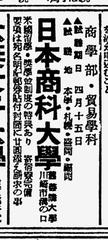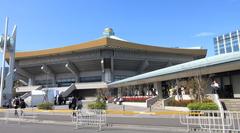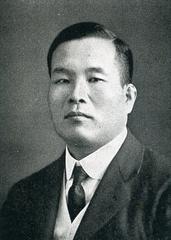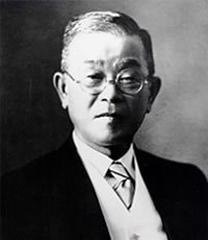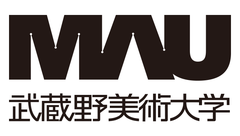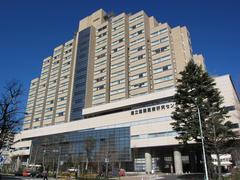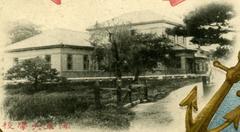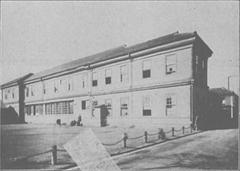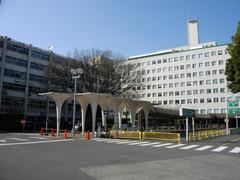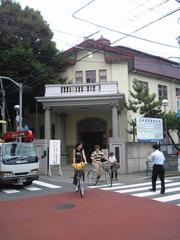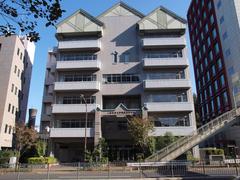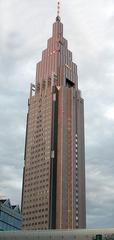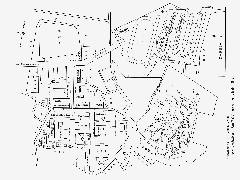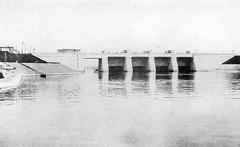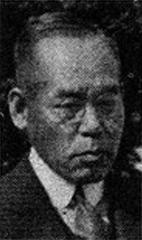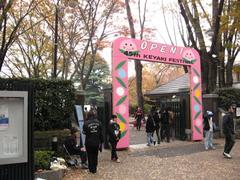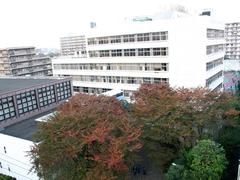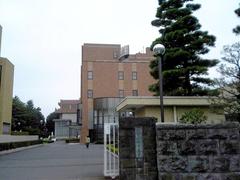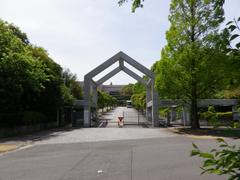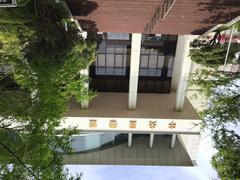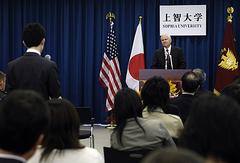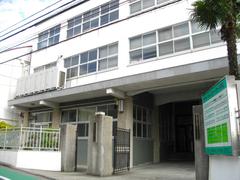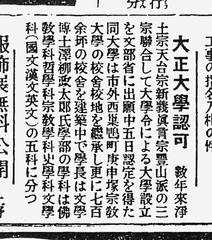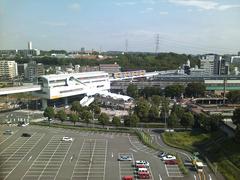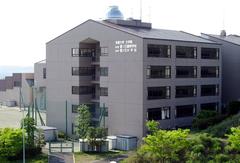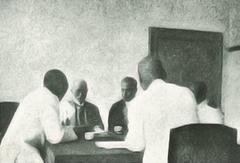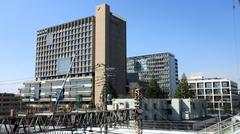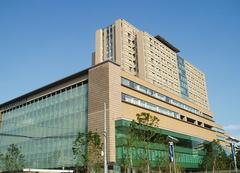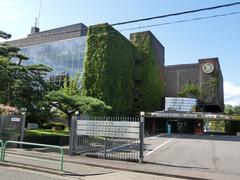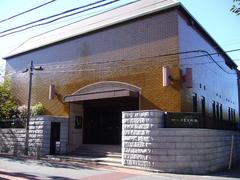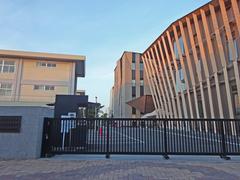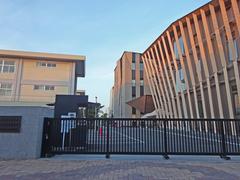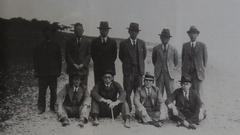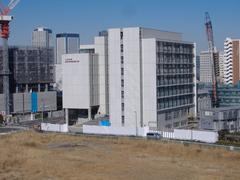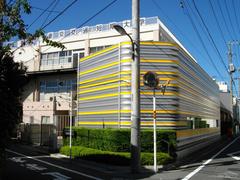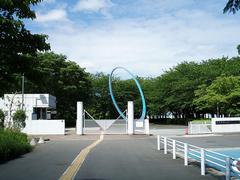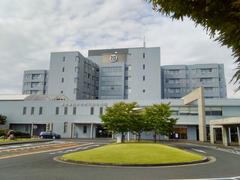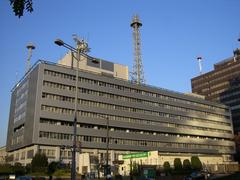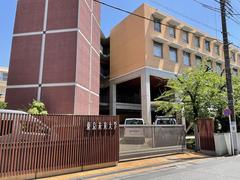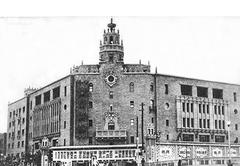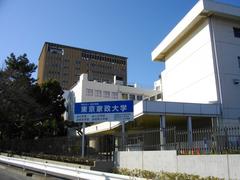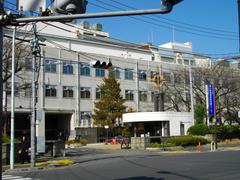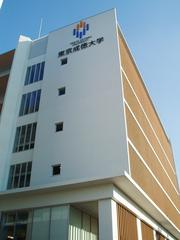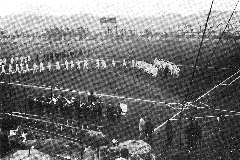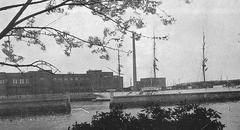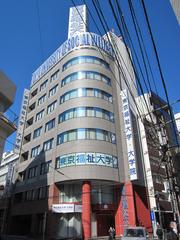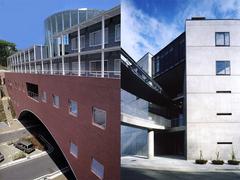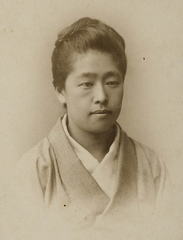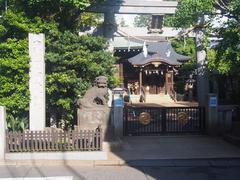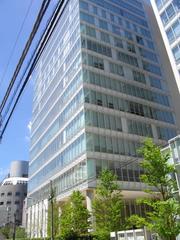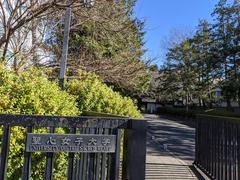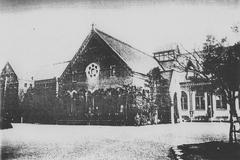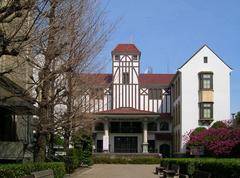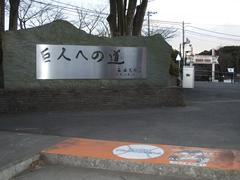
National Hospital Organization Tokyo National Hospital: Visiting Hours, Tickets, and Visitor Information
Date: 04/07/2025
Introduction: Tokyo National Hospital’s Legacy and Role in Japanese Healthcare
Tokyo National Hospital stands as a pillar in Japan’s public healthcare system, embodying a century-long commitment to accessible, high-quality medical care. Founded in the early 20th century as a tuberculosis sanatorium, the hospital has evolved alongside Japan’s health challenges, transitioning from its origins in infectious disease control to a leading institution offering acute, chronic, perinatal, pediatric, psychiatric, and rehabilitative care. Today, it is a flagship facility within the National Hospital Organization (NHO)—Japan’s largest public hospital network—serving both local and international communities with advanced medical technologies, multilingual services, and a multidisciplinary staff.
Beyond patient care, Tokyo National Hospital actively contributes to clinical research, medical data management, and healthcare education, reinforcing its status as a center for innovation and policy development. This guide provides detailed information on the hospital’s history, services, visitor policies, accessibility, and its ongoing impact on public health in Tokyo (DovePress; Generis Online; Tokyo Cheapo).
Table of Contents
- Introduction
- History and Evolution
- Role Within the NHO Network
- Public Health Contributions
- Medical Research and Clinical Data
- Integration with Universal Healthcare
- Modernization and Internationalization
- Visitor Information: Hours, Access, and Services
- Nearby Attractions and Travel Tips
- Governance, Ethics, and Data Security
- Community Impact and Policy
- Legacy and Continuing Relevance
- Frequently Asked Questions (FAQ)
- Conclusion
- References
History and Evolution
The Tokyo National Hospital, now centrally located in Meguro-ku, Tokyo, began its journey as a tuberculosis sanatorium in the early 20th century. At a time when tuberculosis was a primary public health threat, the hospital’s efforts were pivotal in reducing mortality and transforming national disease control (DovePress). Over decades, it broadened its scope, adding specialties such as oncology, neurology, psychiatry, and rehabilitation to address Japan’s evolving health landscape. In 2004, the hospital became part of the NHO, a consolidation of government-managed hospitals, to streamline operations and better serve an aging and diverse population.
Role Within the National Hospital Organization Network
The National Hospital Organization encompasses 140 hospitals across Japan with over 52,000 beds, making it a cornerstone of the nation’s public health infrastructure (DovePress). Tokyo National Hospital serves as a regional hub for advanced care, emergency and disaster response, and the treatment of complex conditions often underserved in the private sector—such as psychiatry, tuberculosis, and neuromuscular disorders. Its mission is to provide equitable, policy-driven healthcare to all, regardless of socioeconomic status.
Public Health Contributions
Historically, Tokyo National Hospital has been at the forefront of Japan’s responses to major health crises. From reducing tuberculosis rates in the mid-20th century to treating patients during SARS and COVID-19 outbreaks, the hospital has demonstrated adaptability and leadership. Its role as a disaster medicine center is vital, particularly in earthquake-prone Tokyo, ensuring readiness for mass casualty incidents and public health emergencies (DovePress).
Medical Research and Clinical Data
As a major contributor to the NHO’s Clinical Data Archives (NCDA) and the Medical Information Analysis (MIA) databank, Tokyo National Hospital supports one of Japan’s most comprehensive medical databases, covering over 8 million patients (DovePress). These anonymized datasets are central to epidemiological research, rare disease studies, and healthcare policy planning, reinforcing the hospital’s dual identity as both a care provider and a research institution.
Integration with Universal Healthcare
Operating within Japan’s universal health insurance system, Tokyo National Hospital offers services accessible to all residents—including foreign nationals (Generis Online). As a public hospital, it accepts patients with rare, chronic, or complex conditions that may not be prioritized by private institutions. This inclusivity, alongside advanced treatments and specialized care, is a key pillar of the hospital’s ethos.
Modernization and Internationalization
In response to Tokyo’s growing international community, the hospital has modernized its facilities with advanced technologies, electronic health records, and multilingual support. English-speaking staff and clear signage ensure that international patients and visitors receive appropriate guidance and care (Tokyo Cheapo). The hospital’s accessibility features—ramps, elevators, and accessible restrooms—further enhance its patient-centered environment.
Visitor Information: Hours, Access, and Services
- Visiting Hours: Usually 2:00 PM to 8:00 PM daily. These may change depending on department or public health situations. Confirm on the official website.
- Appointments: Required for outpatient services; book by phone or online. Emergency care is available without prior appointment.
- Location: 2-5-21 Higashigaoka, Meguro-ku, Tokyo. Accessible from Meguro Station (JR Yamanote, Tokyo Metro Namboku, Toei Mita Line), with local bus connections.
- Accessibility: Wheelchair-accessible entrances, elevators, and restrooms.
- Language Support: Multilingual (including English) staff and signage.
- Fees: Covered by national health insurance or paid out-of-pocket as required.
- Amenities: Cafeteria, vending machines, pharmacy, convenience store, and family waiting areas.
Nearby Attractions and Travel Tips
Visitors can explore Meguro River’s cherry blossoms, the Institute for Nature Study, and other local attractions. Using public transportation is recommended due to limited parking and traffic congestion.
Governance, Ethics, and Data Security
The hospital adheres to strict ethical standards in governance, research, and patient privacy. All clinical data is anonymized, and personal identifiers are securely managed, in compliance with Japanese laws and international best practices (DovePress). Funding is provided by the NHO, ensuring independence and public accountability.
Community Impact and Policy
Tokyo National Hospital’s expertise informs regional and national health policies, particularly in managing intractable diseases and disaster medicine. As a teaching hospital, it provides residency and continuing education programs, ensuring a continuous supply of well-trained healthcare professionals.
Legacy and Continuing Relevance
From its origins as a tuberculosis sanatorium to its current status as a leading center for specialized care, Tokyo National Hospital exemplifies resilience and adaptability. Its integration within the NHO network, research initiatives, modernization, and internationalization ensure ongoing relevance in Japan’s healthcare landscape (DovePress; Generis Online).
Frequently Asked Questions (FAQ)
Q: What are the visiting hours?
A: Typically 2:00 PM to 8:00 PM daily, but check the hospital’s website for current details.
Q: How do I make an appointment?
A: Via phone or the hospital website. Emergency services are available without appointment.
Q: Is English support available?
A: Yes, English-speaking staff and multilingual signage are provided.
Q: Is the hospital accessible for people with disabilities?
A: Yes, with ramps, elevators, and accessible restrooms.
Q: How do I get to the hospital?
A: Located in Meguro-ku, Tokyo, near Meguro Station (JR and Tokyo Metro lines), with bus services available.
Conclusion
Tokyo National Hospital represents a blend of tradition and innovation, providing comprehensive care supported by modern facilities, research excellence, and a commitment to inclusivity. It stands as a vital institution in Tokyo’s—and Japan’s—healthcare system, serving patients, visitors, and professionals from all backgrounds. For the latest information, appointments, and visitor guidelines, consult the Tokyo National Hospital Official Website or the NHO website.
References
- Existing Data Sources for Clinical Epidemiology Database of the National Hospital Organization in Japan, 2021, Nakaya et al. (DovePress)
- An Overview of the Healthcare System in Japan (Generis Online)
- English Speaking Hospitals in Tokyo (Tokyo Cheapo)
- National Hospital Organization Official Website
- NHO Official PDF
- Medical Excellence Japan
- Hotel Niwa Tokyo
- Tokyo Dome Hotel



